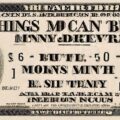As we step into a new decade, financial stability and smart budgeting are at the forefront of everyone’s minds. With the ever-changing economic landscape, it’s crucial to stay ahead of the curve when it comes to saving money. We’ve consulted with a renowned budgeting expert to bring you actionable and effective ways to bolster your savings this year.
Understand Your Spending Habits
The first step to saving money is understanding where it’s going. Our budgeting expert suggests tracking your expenses for at least a month. Use a budgeting app or simply jot down all your purchases in a notebook. Once you have a clear picture, categorize your spending and identify areas where you can cut back.
Create a Solid Budget Plan
After assessing your spending habits, the next step is creating a budget that works for you. A zero-based budget, which allocates every dollar to specific expenses, savings, and debts, can be particularly effective. Ensure your budget is flexible enough to accommodate unexpected expenses.
Set Realistic Saving Goals
Setting achievable goals is key to saving success. Whether it’s for an emergency fund, vacation, or retirement, define clear and realistic objectives. Our expert suggests the SMART method: Specific, Measurable, Achievable, Relevant, and Time-bound goals.
Reduce Monthly Bills
Take a close look at your monthly subscriptions and bills. Are there services you don’t use often? Can you negotiate better rates for utilities or insurance? Sometimes, a simple phone call can lead to significant savings on recurring expenses.
Embrace Frugal Living
Adopting a frugal lifestyle doesn’t mean you have to sacrifice quality of life. It’s about making smarter choices—like cooking at home, using public transportation, and shopping second-hand. Small changes can have a big impact on your savings.
Invest in Financial Education
Our expert emphasizes the importance of financial literacy. Understanding basic financial concepts such as compounding interest, investment, and credit can empower you to make better financial decisions. Consider taking a course or reading up on personal finance.
FAQ
How much should I aim to save each month?
Our expert recommends saving at least 20% of your monthly income, but this can vary based on your individual goals and circumstances.
What’s the best way to track my expenses?
There are numerous budgeting apps available, or you can use a simple spreadsheet. The key is to consistently record all expenses, no matter how small.
Is it better to pay off debt or save money?
It depends on the interest rate of your debt. High-interest debt should generally be paid off first, but it’s also important to have some savings for emergencies.
How can I save money on groceries?
Plan your meals, stick to a shopping list, buy in bulk, and choose generic brands over name brands to save on your grocery bill.
What are some good resources for financial education?
Books, online courses, podcasts, and blogs dedicated to personal finance are great starting points for improving your financial literacy.









